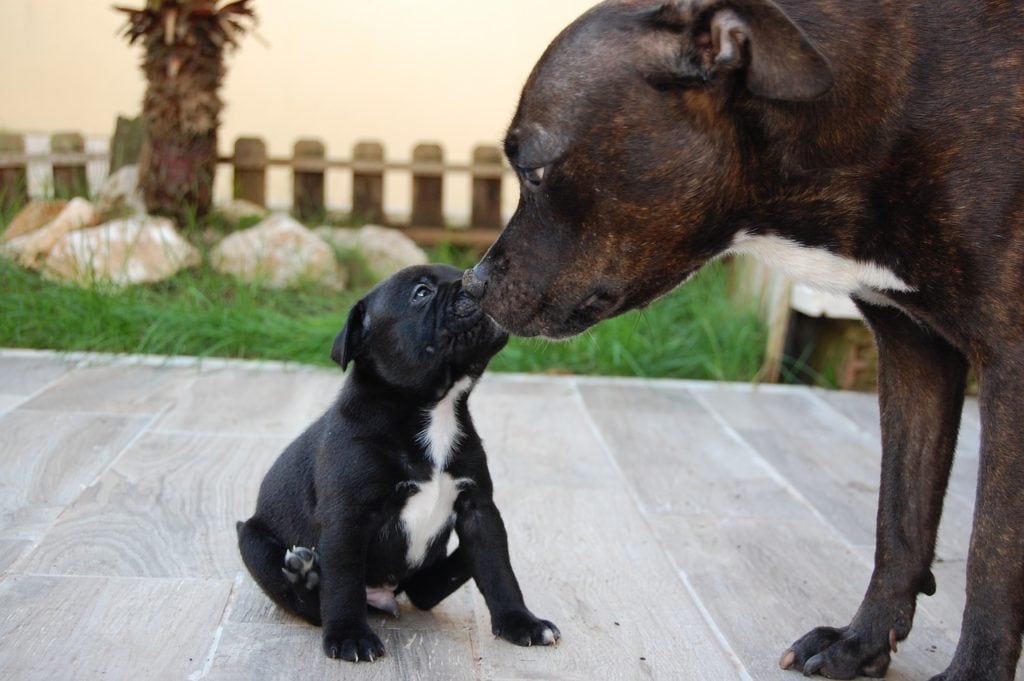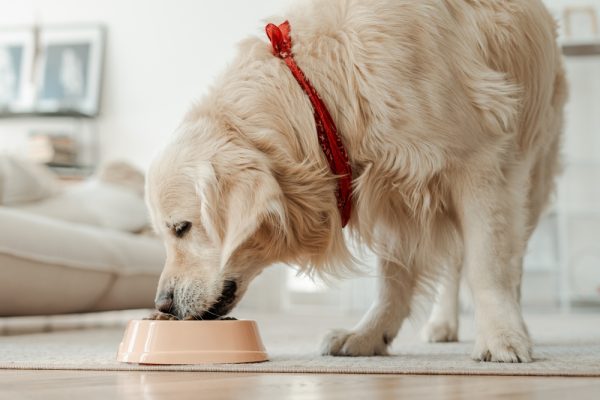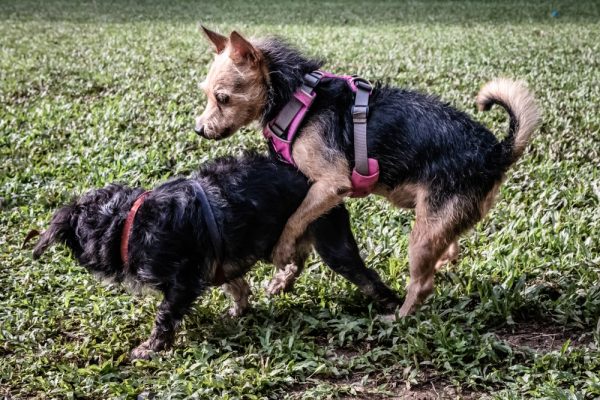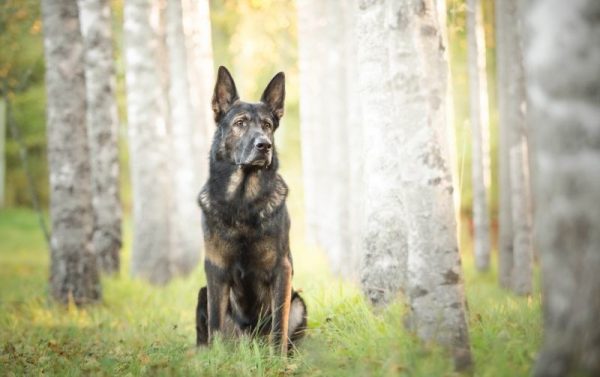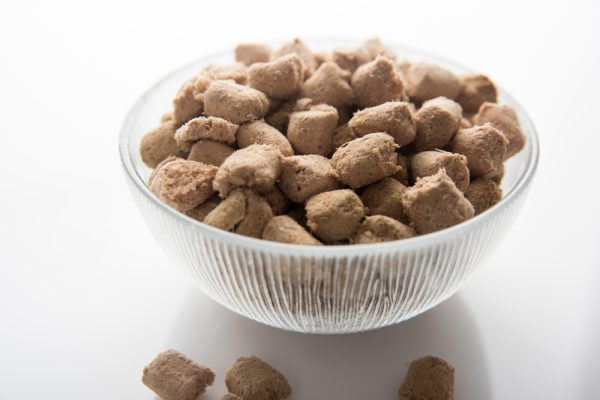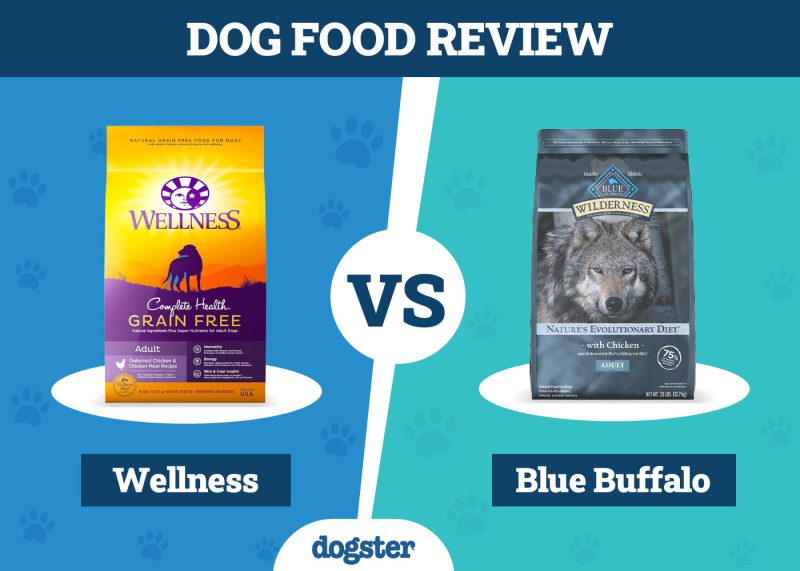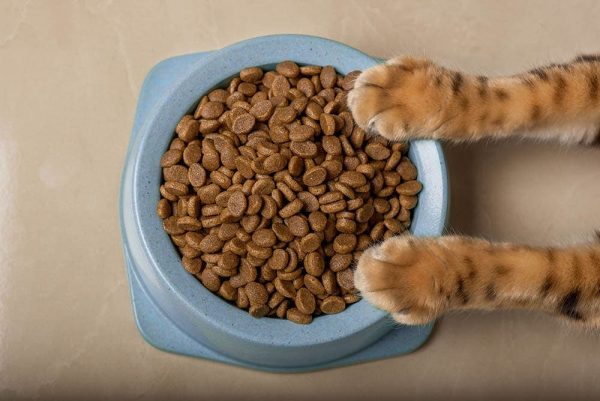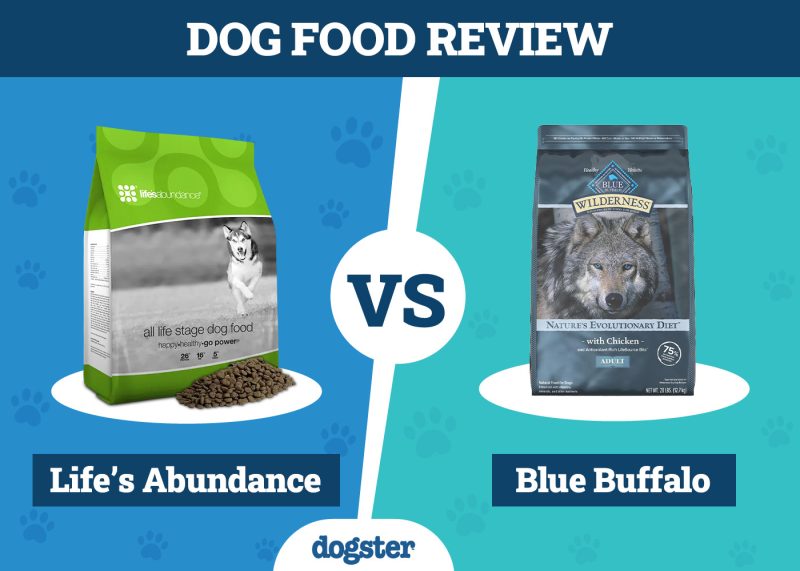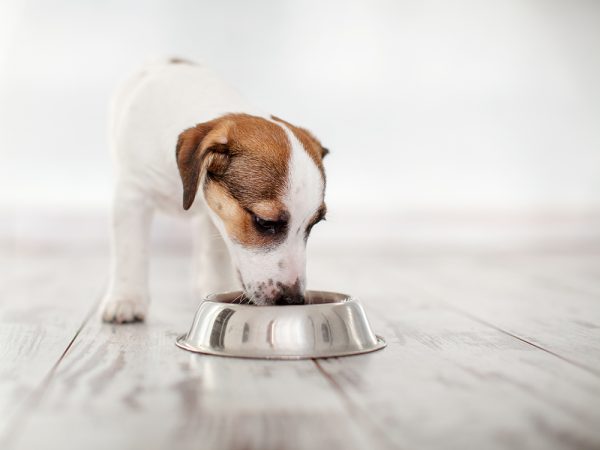In this article
Since dogs are social animals, they use many different types of interactions. All canine body language, taken in its broadest sense, is intended to promote peace among their pack and avoid tensions rising to dangerous levels and violent confrontations. Does one of your dogs enjoy licking the other’s mouth? Do you ever wonder about the reasons behind this behavior or whether you should try to stop it?
There are many different reasons why dogs lick each other’s mouths. In this article, we’re going to explore mouth-licking behavior in dogs in three cases: puppies licking their mother’s mouth, dog moms licking their offspring, and adult dogs licking each other. We also give you the most effective ways to prevent this behavior if it becomes problematic. Let’s dig deeper.

Puppies Licking their Mother’s Mouth
As puppies develop, they will experience a period known as weaning, which means transitioning from their mother’s milk to more solid foods. In this phase, puppies in the wild lick their mother’s mouth after she returns from hunting with her belly stuffed with meat.
It’s a cue for the mother to regurgitate some predigested food for her starving pups. Domesticated puppies exhibit the same behavior to signal their mom that they are hungry and want to be fed.
Mother Dogs Licking Their Offspring
If your female dog is nursing a litter of puppies, she will lick and clean her offspring, even after they are grown. The licking typically targets the face and neck, but sometimes it can involve the mouth. The majority of puppies will happily receive their mothers’ affection and care.
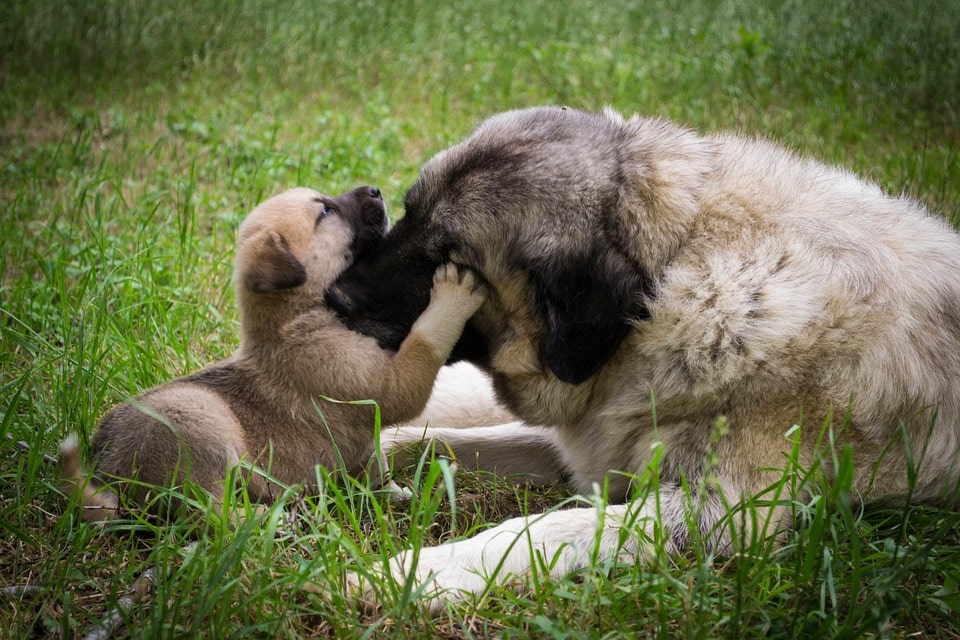
Adult Dogs Licking Other Dogs’ Mouths
Showing Affection and Bonding
Consider licking the mouth to be the canine version of social kissing. Sometimes, it’s just a way dogs display affection toward others. Studies have shown that licking triggers the release of endorphins in the dog’s brain that make both the recipient and the licker feel good.1 That’s why licking between four-legged friends is such a great bonding tool.
Wild dogs may need to lick their pack mates to ensure the closeness in their group that is necessary for their survival. Of course, domestic dogs don’t need to stick together in packs to survive, but they still have that instinct.
They’re Ready to Play Together
Licking each other’s mouths is often a sign that dogs are ready to play, regardless of whether they are meeting for the first time or are already the closest friends. It frequently goes together with lowered front legs and a wagging tail, indicating a strong desire to play and have fun together.
However, if the dog being licked isn’t up for playing, you should move the other pet away before the licking becomes an obsession and an unpleasant experience.
Expressing Deference
In the wild, many lower-ranking pack members lick the more dominant members to show their respect. This behavior is crucial for maintaining harmony in the pack. When a dog encounters a peer they respect, they might lick that dog’s face to express their deference.
During an intro, a lower-ranking dog might lower their head and extend their tongue to lick the mouth of a more dominant and higher-ranking dog in a gentle way. If the respected dog responds with a lick, it means everything is going well, and they accept that display of deference.
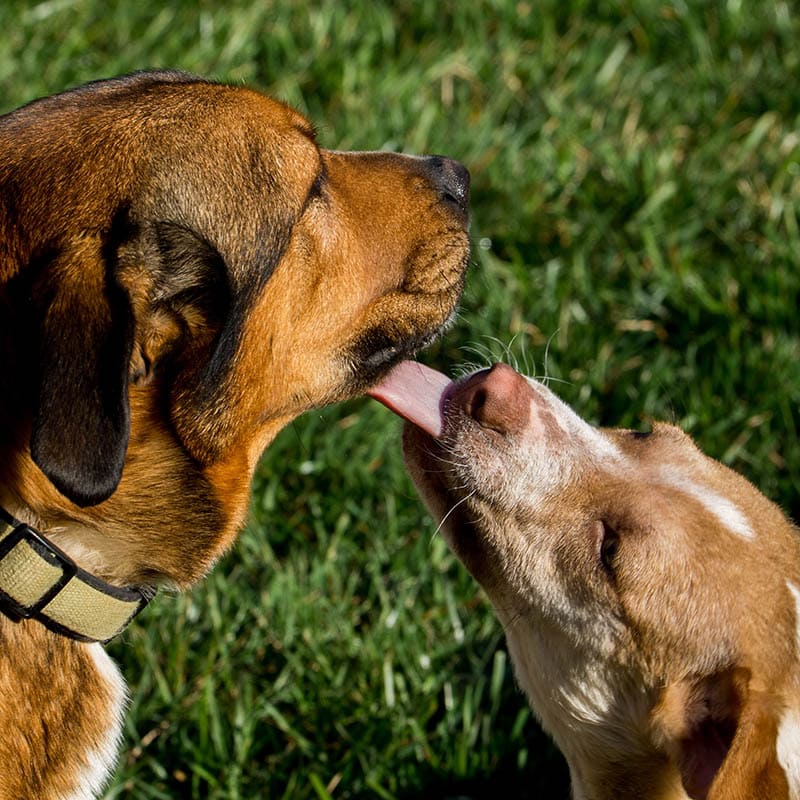

Should You Stop This Behavior?
You can allow the licking behavior to go on as long as it’s not too much and both dogs are comfortable with it. However, if you see any of the following happen, you should step in and limit the licking:
- The dog that is licking continues this behavior for longer and longer lengths of time and seems unable to stop. Also, they tend to perform this behavior with every dog they come across.
- The licked dog tries to escape, but the other dog pursues them aggressively, so they start to growl, feel uncomfortable, and bite.
- A dog is attempting to lick the wounds of another dog.
Licking Can Become an Obsessive Habit
For dogs, licking is very relaxing, just like chewing and sniffing. Some four-legged friends become obsessed with this behavior after discovering how good it feels and take mouth-licking to the next level by aggressively doing it to another dog.
You should intercede quickly and firmly in this situation because obsessive licking is unfair to any dog who suffers from it, and over time, it will harm their bond. Even worse, fighting can happen if the dog being licked loses its patience.
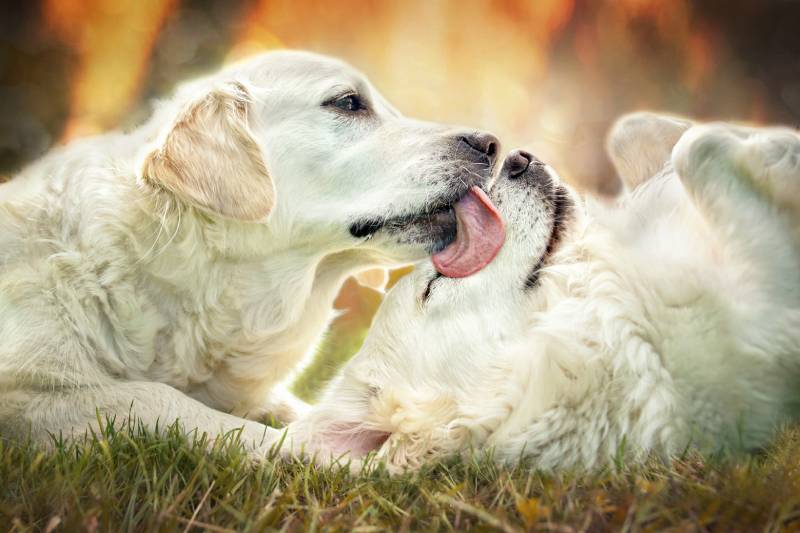
How to Stop a Dog From Licking Other Dogs’ Mouths
Liking is an appeasement signal, and your dog will tend to lick even more if you scold, so you shouldn’t do it. When you see your pet obsessively kissing the mouth of another, coax all dogs involved to stop with a cheerful voice and give them tasty treats.
With this positive method, you can effectively stop this behavior. Then you might want to physically separate the dogs by placing them in different rooms, putting one inside and the other outside, putting one in a crate, etc.

Conclusion
Dogs licking other dogs’ mouths is quite common in the canine world. It relates to an appeasing experience and is not a problem in most circumstances. If the behavior seems okay with all the dogs involved and doesn’t occur too often, it can be acceptable to continue. However, things get out of control occasionally.
Aggressive licking can be extremely disturbing to some dogs and might lead to a fight, so make sure you keep an eye out for signals that the other dog is upset about the action.
Featured Image Credit: staffy, Pixabay
